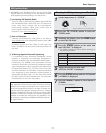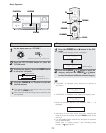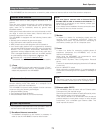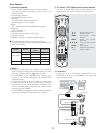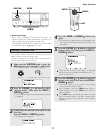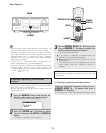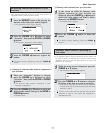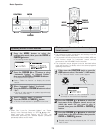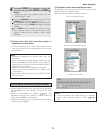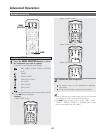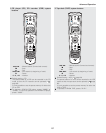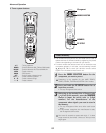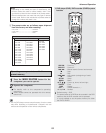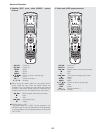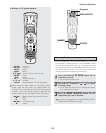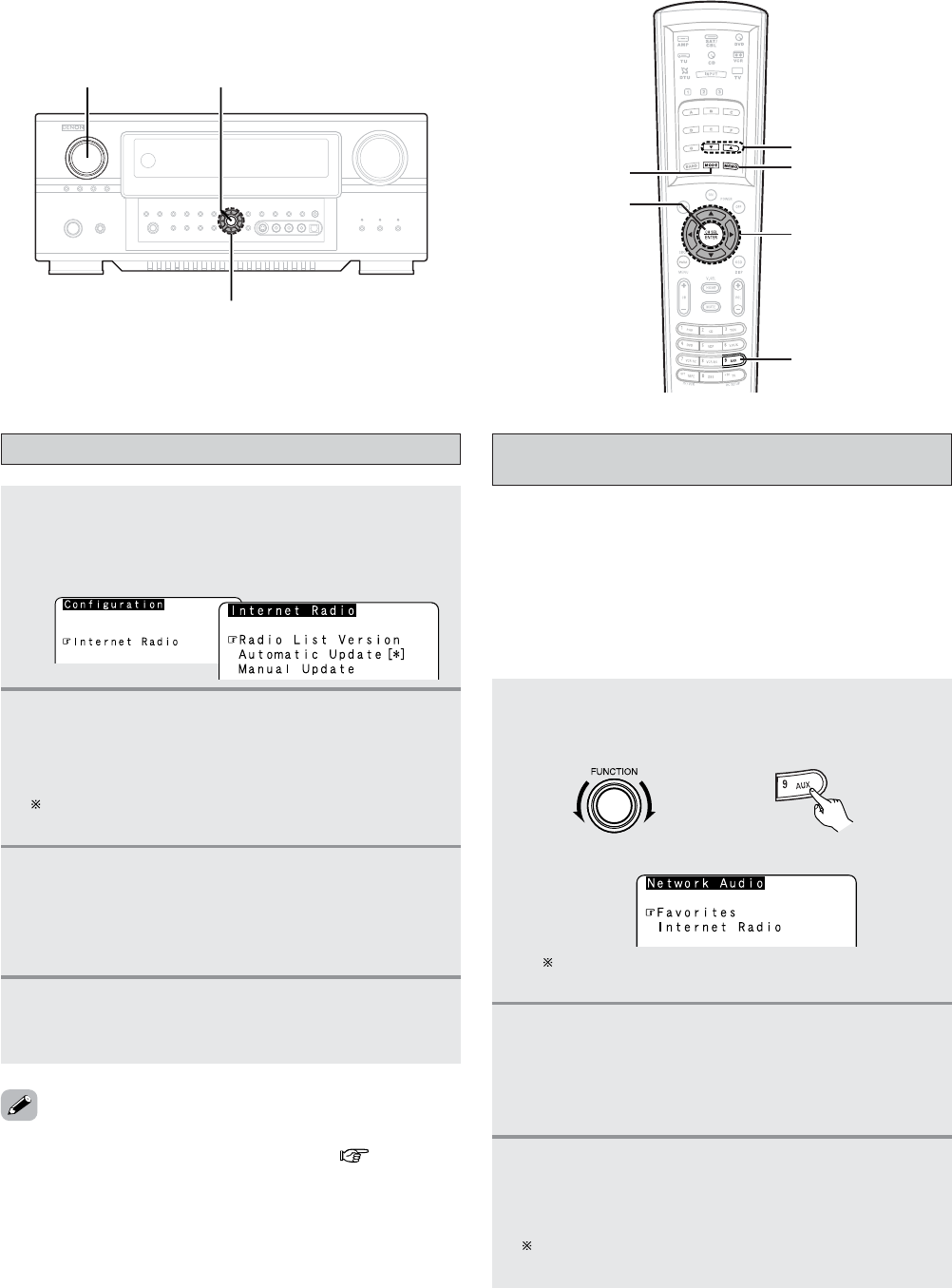
78
Basic Operation
ENTER
CURSOR
FUNCTION
CURSOR
AUX
MEMORY
MODE
TUNING
ENTER
Select “Radio List Version” to display the current
version.
Updating the list of radio stations
1
Press the MODE button to select the
configuration mode, then press the
ENTER or
CURSOR
GG
button.
• The settings screen appears.
2
Press the CURSOR
DD
or
HH
button to select
“Automatic Update” or “Manual Update”,
then press the
ENTER or CURSOR
GG
button.
• The update screen appears.
3
-1
When “Automatic Update” is selected:
Press the
ENTER or CURSOR
GG
button to select
“Yes”.
• The list of radio stations is updated approximately
once every other day.
3
-2
When “Manual Update” is selected:
Press the
ENTER or CURSOR
GG
button.
• The list of radio stations is updated this one time.
• When “Yes” is set for “Automatic Update”, set “Power
Saving” in the “Network Setup” to “OFF”( page 124).
When used with “Power Saving” set to “ON”, we
recommend performing the “Manual Update” procedure
periodically (about once a week).
The host names of the computer(s) (music
server(s)) on the network are displayed.
• The necessary system connections and settings must be
made in order to play music files.
• This procedure is used to play music files (in WMA, MP3 and
WAV format) stored on computers (music servers)
connected to the AVR-4806CI via the network.
• The computer’s server program must be launched before
using this function. For details, refer to the server program’s
operating instructions.
Playing music files stored on the computer
(music server)
1
Either turn the FUNCTION knob or press the
AUX button to select “NetAudio” (AMPmode).
• The “Network Audio” menu screen appears.
(Main unit) (Remote control unit in the AMP mode)
2
Press the CURSOR
DD
or
HH
button to select the
host name of the computer (music server) on
which the music file you want to play is
located, then press the
ENTER or CURSOR
GG
button.
3
Press the CURSOR
DD
or
HH
button to select the
search item or the desired folder, then press the
ENTER or CURSOR
GG
button.
Playable music files are indicated by the “
∗
” mark in
front of them.




